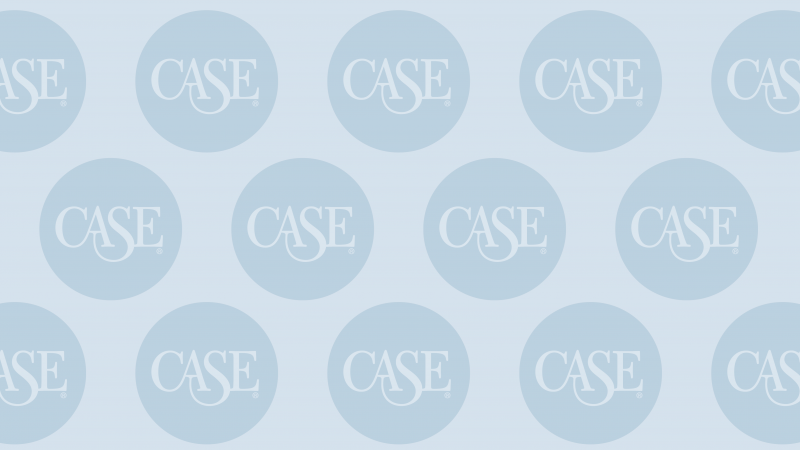
7 Steps to Prepare Your Regular Giving Plan for Fall
Advancement teams have had to shift quickly to adapt to the challenges of COVID-19. And, according to a new white paper from U.K. firm Rapidata, the pandemic highlights the need for a renewed focus on regular giving (or annual giving) programmes. As deputy director of philanthropy at the Royal Academy of Music, I couldn’t agree more. But–especially with shrinking budgets–what can fundraisers do to make sure your programme is ready for the autumn? Here are seven changes to make now—ones I’m implementing myself.
1. Take care of your team. The days of starting and ending emails with wishes of health, safety, and successful navigation of the “new normal” will certainly pass, but I don’t want to lose the spirit of support that’s behind them. For my team, this means worrying less about who is in the office and when, if the work is getting done. We’re finding more ways to celebrate achievements remotely, prioritising trainings on resilience and change management, and putting transparency and kindness first.
2. Close the door on emergency appeals. While it was exciting, an emergency appeal won’t deliver long-term–especially in a higher education fundraising environment. It’s time to thank those donors, demonstrate their impact, and steer back toward unrestricted fundraising.
3. Shift messaging themes. For this year’s appeals, I’m focusing less on the theme, “the future of music is important, and you can help create it,” and more on the notion, “Royal Academy of Music is a creative space where cultural resilience can be fostered and the love of music shared.” Shared values like security, equality, and compassion need to be front and centre.
4. Rethink analytics. Measuring success by year-on-year financials isn’t the best way to show regular giving value right now. Some experts argue, in fact, that this might be the year to pause use of traditional metrics. Instead, I’m proposing new key performance indicators that focus on retention (loyalty), engagement, and lifetime value rather than current fiscal year cash income. And I’m telling everyone who will listen that the 90% renewal rate we have this year (thanks to the emergency appeal) isn’t replicable.

"Shared values like security, equality, and compassion need to be front and centre."
5. Think: all supporter engagement, all the time. Amid COVID-19 and beyond, donors will continue to give to the charities that provide an amazing donor experience and demonstrate impact. I’m rebalancing my budget toward supporter engagement activities, such as monthly editions of our stewardship e-newsletter, more donor content on our social media channels, thankathons, and thank you advertisements in programmes. We're also redrafting key donor journeys (although I’m still planning some appeals and in-person asks).
6. Embrace virtual events. My team will spend July and August building out our slate of virtual programming, taking advantage of the fact that digital tools can provide a much more cost-effective, enriched experience to lower-level donors and those overseas. E-newsletters, virtual coffees with the principal, Zoom performances, question and answer sessions with elite artists: all of these are on the table.
7. Start with authenticity. I’m trusting donors to handle the truth. This year, I need to be more up front about our financial realities and those of the arts sector as a whole. I’m telling the whole truth about the true cost of training musicians. I’ll also be ready to address difficult questions around government bailouts and recruitment deficits, if they occur.
My watchwords for 2020-2021 are bold, integrated, and kind. What are yours? How are you preparing your regular giving programme for a post-coronavirus world?
About the author(s)
Kurstin is a passionate advocate for the power of education, with over 20 years of experience as a fundraiser, teacher, mentor, and writer. She currently serves as Senior Partner at Cairney & Company, following a distinguished career at some of the most prestigious universities and organisations in the US and UK. Kurstin's expertise spans a wide range of fundraising areas, including campaign management, major gifts, regular giving, supporter care, and legacies. She has held senior roles at institutions like Linfield University, the Royal Academy of Music, and the University of St Andrews, as well as overseeing significant campaigns such as the £30m Lead The Way capital campaign for Dogs Trust.
Outside of fundraising, Kurstin is dedicated to mentoring the next generation of fundraisers. She serves on the CASE Spring Institute faculty, teaching on topics like regular giving and mental health for fundraisers, and developed the Leadership Accelerator module in 2024. Recognised for her contributions to philanthropy, she has earned the CASE Laureate and Crystal Apple award. In addition to her leadership roles, Kurstin is passionate about fostering strong team cultures, offering training in areas like leadership development, team retention, project management, and cultural competency. She believes that by cultivating the right behaviours in teams, successful fundraising outcomes will follow.









